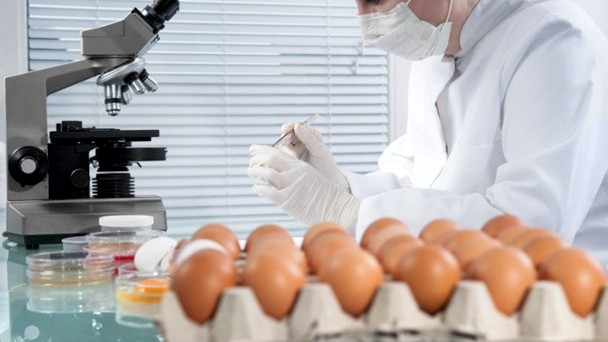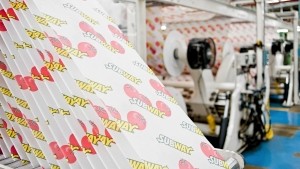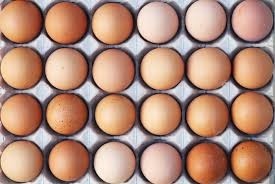China direct
Contaminated Dutch eggs found in Hong Kong

The SAR’s Food and Environmental Hygiene department had been collecting samples in response to a notice issued by Netherlands authorities warning that some eggs produced in the country had been found to contain fipronil at potentially dangerous levels.
The two samples they identified came from local outlets, and were found to contain fipronil at levels that exceeded the local legal limit.
More of the Dutch eggs have been stopped by Hong Kong customs, and vendors have been told to remove earlier batches from shelves immediately. The importer has also been ordered to to initiate a recall.
In a precautionary measure, the Centre for Food Safety has held all Dutch poultry egg imports for testing; they will only be released to the market following satisfactory results.
About 180 Dutch farms have been temporarily shut down and millions of eggs blocked from sale in Europe as authorities in the Netherlands probe the scale of the problem.
Fipronil is a common ingredient in veterinary products used for getting rid of fleas, lice and ticks. It banned from being used to treat animals destined for human consumption.
It is feared the substance was mixed with an insecticide used legally in the keeping of chickens to improve its effectiveness.
Prosecutors are said to be examining the client list of two companies in Belgium that supply anti-lice agents to Dutch and Belgian farms.
The Dutch food safety board warned consumers that one batch of eggs “had such elevated levels of fipronil that their consumption would present a serious public health risk”. They advised that eggs from at least 27 other farms should not be eaten by children.
The Netherlands has almost 1,000 lay hen factory farms producing 11bn eggs a year.
More from China…
Grain exporters warned of tighter controls at Chinese ports
Australian grain exporters have been told to be wary of tougher new grain import standards as Beijing implements a raft of agriculture reforms.
Speaking in Melbourne, policy expert Erlend Ek told the members of the Australian grains industry that one Australian shipment of grain had been stopped at a Chinese port last month due to standards that came into effect at the end of June.
These standards relate to ergot, a fungal disease that reduces yields and can be toxic to animals and humans.
China had brought in a new maximum tolerance level for any shipments that might harbour the ergot fungus at a time when Chinese policy on food production has been moving from self-sufficiency to a more market-based approach.
Beijing’s emphasis has now been placed on food quality and environmental concerns, Ek said as “China wants to be seen as a quality producer”.
Because of “massive changes” in food and agriculture policy, hundreds of standards have been updated.
“They have just revised 6,000 national standards for food,” Ek said. “The ergot issue comes as a result of this.”
Chinese authorities have also wound back high subsidies and price support for local farmers, in a bid to drive efficiency.
“[The government is saying] let’s make farming professional and more of an industry, and we need to allow other sectors to invest in agriculture,” Ek said.
It is expected that this will involve changing the current collective ownership structure of agricultural land to allow companies and individuals to trade in collective ownership.
There remain opportunities for Australian grain exporters, albeit under higher quality standards, as demand exceeds supply in China.
Chinese grain production is expected to reach 600m tonnes by 2020, in the face of demand estimated at 700m.
The country imported some 105m tonnes last year, rising to a predicted 120m tonnes this year, mostly of soybeans.
Novolex sells Chinese paper subsidiary to Aussie packaging major
Detmold Group has agreed to buy Heshan Innopack from its American parent.
The Australian packaging giant is expected to complete the deal with Novolex to acquire its Chinese subsidiary by the end of August.
Innopack came under Novolex’s mantle after the American company’s purchase of Burrows Paper Corporation, its former corporate master, last December.
The Chinese firm manufactures a range of food wraps, paper bags and food cartons at a facility in Heshan, Guangdong province.
Detmold, with over 800 employees, has operated in China for over 20 years and has a manufacturing facility also in the city. The company will take over the Innopak operations and continue to manufacture at both sites.
All Innopak staff will be offered employment by Detmold on comparable terms, including local Innopak management, the company said.
Detmold chief executive Alf Ianniello said the acquisition was an important step in the company’s continued growth in China.
“Our global customers will benefit from the additional capacity and capability that this manufacturing expansion brings to our organisation,” he said.
“We hope each of Innopak’s 120 staff take up our offer to continue their careers with us.”















